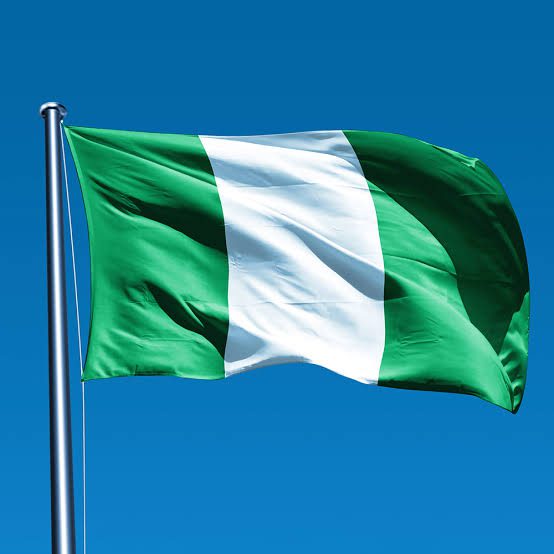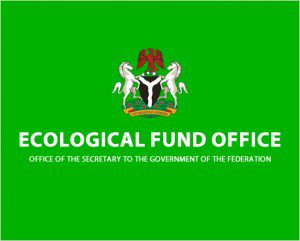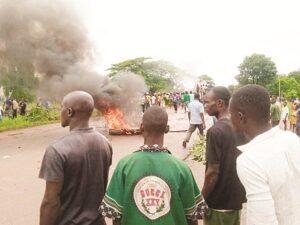

Protest: What exactly do Nigerians want?
By Ismail Omipidan
In June, 2024, precisely June 9, I bought a small basket of Irish potatoes for N20, 000. However, by yesterday, I bought the same quantity for N6, 000 at the Asokoro extension Market. This, no doubt, negates the long-held notion that whatever goes up in Nigeria hardly comes down. The reason for this sudden economic twist, I reckon, is government intervention in the face of free-fall of prices of goods. By implication, it means things will get better in Nigeria.
Can these things get better through protest? I don’t think so. If anything, protest would compound the situation and may even set us back several years behind. The humongous economic loss that attended #EndSARS is a handy proof.
In 2012, I did not support the protest against fuel subsidy removal. Therefore, I would not lend my support to those who want fuel subsidy back. Majority of Nigerians berated former President Goodluck Jonathan for lacking the courage to pull it through at the time. I agree with that school of thought.
Interestingly, over the years, one thing that has been very clear about Nigeria and its leaders is the fact that we do not lack good ideas and initiatives, but what is lacking is courage and political will to do the right thing at the right time. With the subsidy removal and other deliberate efforts by the current administration at stabilizing the country’s economy with a view to putting it on a sound footing, President Bola Ahmed Tinubu appears to have shown capacity, courage and political will to confront this fuel subsidy headlong after the nation moved around in circles since 2003 or thereabouts over this same issue. Yet, we say we want protest. What for exactly?
I recall that, in the 90s, even when government pegged the price of PMS at N20 per litre, it was sold for between N70 and N150 across the country. Ironically, the same argument being advanced by those opposed to the removal of subsidy some 16 years ago is the same argument they are putting up today.
Unfortunately, the idea of using half of the country’s budget to subsidise for a vocal minority in our midst is no longer economically sustainable. Prof. Chukwuma Soludo, a former CBN Governor and incumbent Anambra Governor, lent credence to the above fact in 2015, shortly after the presidential election, when he said fuel subsidy that was being funded with tax payers’ money only benefited a negligible few. While describing it as a fraud, he urged the Buhari’s administration to remove it if it must make real progress.
Prof. Soludo may have made the suggestion because in the buildup to the 2015 presidential election, former President Muhammadu Buhari as candidate of the All Progressives Congress (APC), promised to sanitise the oil sector, which provides Nigeria with about 95 per cent of its foreign exchange earnings and which invariably is the lifeline of the country’s economy.
While the former President tried his best with regard to reforming the oil sector, President Tinubu should be encouraged to carry on from where Buhari left off, rather than trying to blackmail his government to beat another retreat by reinstating the already-removed fuel subsidy which might invariably spell doom for the country in the long run.
Interestingly, before Prof. Soludo, another ex-CBN Governor and the 16th Fulani Emir of Kano, HRH, Sanusi Lamido Sanusi, had been at the forefront of the advocacy for the removal of fuel subsidy.
He had argued that, “to continue borrowing trillions of Naira and subsidising current consumption is to ask our children to pay for our comfort today.”
He continued, “Stable economies are sick. There are dark clouds on the global horizon; it is easy to take unpalatable economic decision today that may be politically appropriate to secure the future; the universities have roles to play in this debate. We have to face the fact that we simply cannot continue to live above our means. If we do not take that decision, our children are going to face a difficult situation that the future of our country will be involved in.”
In the buildup to the 2011 presidential election, March 2011 to be precise, I covered an event where HRH Sanusi as CBN Governor told an audience, which included the then President Jonathan and his Vice President, Namadi Sambo, in Kaduna, that the economic policies of the Federal Government were killing Nigerians.
He told Jonathan and Sambo pointedly that they needed to decide whether to continue to empower a tiny few or empower the entire country.
At the Kaduna event for instance, the Kano Emir argued among other things that once there were the right economic policies for a country, every part of the country would benefit, adding that “some of the states in the North are poorer than Niger, Chad and Cameroon. I have always said that if you have the right economic policies for the nation, every part of the nation will benefit.”
He further noted that agriculture was 42 per cent of Nigeria’s GDP and the bulk of the arable land in Nigeria and the bulk of agricultural products come from the North.
“So, why is there a higher incidence of poverty in the North, which accounts for 42 per cent of GDP?” he asked.
In supplying the answer, he said, “It does not need a genius to know that we do not have the right agricultural policies and the problem is that agriculture in the North remains production. It is a problem that is consistent in our economic programmes.”
Barely six months after the inauguration of the then President Jonathan, November to be precise, HRH Sanusi, still as CBN Governor, warned us on the dangers of retaining the fraudulent fuel subsidy, when he said, “It is a very difficult time in the world today and economically for policy makers. It is important for every Nigerian to remember that we don’t live in an island. We continue to have an economy that remains vulnerable to movement of economic goods and prices. We therefore cannot ignore that. European countries are groaning under the weight of sovereign debts. Governments are falling under like a pack of cards.
“The low bond sales of Germany, the strongest economy in EUROPE, sent a warning signal about the future of the Eurozone. India has been under inflation for about one year and high rate has not brought it under control. Brazil is grappling with huge deficit problem; the world faces a risk of double economic recession with the implication for the price of oil, government revenue with the implication for macro, economic stability.
“It is important to call on the academic community to play a role in the extremely difficult and painful economic decision that needs to be taken now in order to avoid disaster in the future.”
For us to still be talking about fuel subsidy 13 years after this warning is an indication that we appear unprepared to progress as a country.
He went further to say, “It does not mean that government lacks sensitivity to the pain it will cause. But It is a recognition of the consequence of not taking the decision now which will be a Greek-type economic situation in a few years time. “
That was HRH Sanusi 13 years ago. Must we continue to run away from our challenges and postpone the doomsday?
If, therefore, the current administration must make the desired impact, which we all want to feel, it must avoid the idea of going back and forth over policy decisions. To make the desired impact, the various states too must make impact.
The truth is that, yes, there is hunger in the land, President Tinubu acknowledged that fact, and he had said repeatedly that they are taking measures to ensure that the issue is taken care of, and we are already seeing results.
But as someone who believes strongly in true federalism, as someone who has always advocated that federal government has no land anywhere, and that it is the state that has land and therefore, resources should be devolved to the states to ensure that they are able to take care of the citizens, I believe the states should do more with regard to food production and security. Basically, all the governors without exception, supported the removal of fuel subsidy so that they could have more money to develop their states. Are they developing their states ?
As at April and May 2023, the highest the FAAC shared was about 780bilion naira. But by June, they shared 1.1trillion naira and the last one for that year, which was December, was also over a trillion naira and that has remained the pattern ever since. So, the question should be, what have the states and the local governments done with the humongous amount of money accruing to them since the removal of fuel subsidy? What tangible steps have they taken to provide palliatives for their people to cushion the effects of the ongoing pervasive hunger in the land?
Truth is, if these resources had been properly applied, some of the economic crises we are witnessing now would not have arisen? You are aware that in the history of this country, there is no government that had allocated palliatives in terms of rice to lawmakers and the state governors for onward transmission to the people the way the administration of President Bola Ahmed Tinubu has so far done. So, when we talk about bad governance, we must situate it. For me, I see sincerity of purpose and it is on that premise that I will say to every Nigerian out there that after hardship comes, relief. I believe very strongly that with some of the measures that have been taken so far, truly, relief will come.
Omipidan, a journalist, writes from Abuja.




